2017 Hyundai Verna: First Drive

Highlights
- The 2017 Hyundai Verna borrows its styling from the new Elantra
- The new Verna's cabin is finished in a dual-tone colour scheme
- Engine options include 1.6-litre petrol and diesel four-cylinder units
The Hyundai Verna, originally launched over a decade ago went through three generations in India was long overdue for an update. With competition selling nearly 10 times the number of units Hyundai sold every month, the Korean automaker needed a much needed shot in the arm in this segment. Now in it's fifth generation globally and fourth in India, the new sedan has now officially been launched at a competitive price of ₹ 7.99 lakh to ₹ 12.61 Lakh (ex-showroom, Delhi) to take on the likes of the Maruti Suzuki Ciaz, Honda City, Volkswagen Vento and the Skoda Rapid. We got behind the wheel of the new Verna at Hyundai's in-house test track at the Chennai research and development centre to get a first hand feel of the new car. Read on to know more!
Also Read: 2017 Hyundai Verna Review
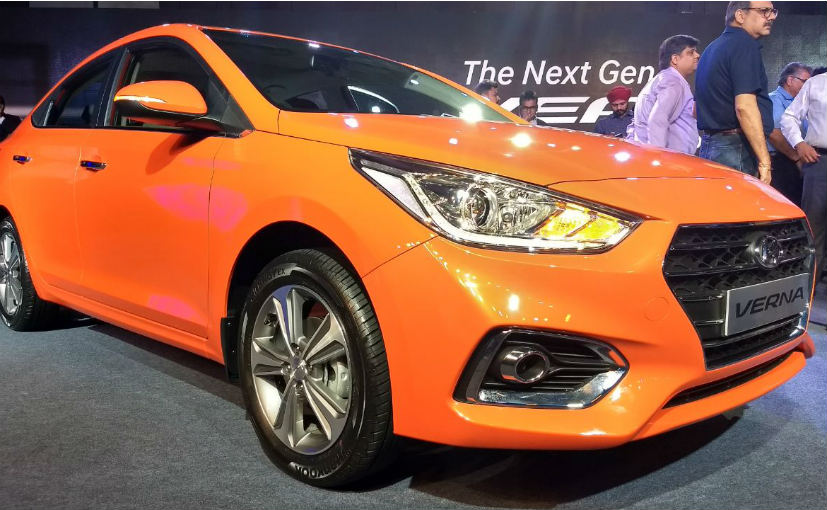
This is the 5th generation Verna, globally and is sold in 66 countries
Also Read: 2017 Hyundai Verna Launched; Price and Other Details
Video: New-Gen Hyundai Verna Launch Event: Prices & Specs ☟
So lets start with the way it looks. In a move that is very unlike Hyundai, the Korean automaker has taken an evolutionary approach to the styling on the new car. The new 2017 Hyundai Verna though does look like a shrunk down version of the larger Elantra with the swept back headlamps that house the daytime running lights and projector units and the chrome festooned projector fog lamp. The Verna also gets the new Hyundai grille design that is a lot wider than before and also a lot edgier. When viewed in profile, the Verna still has that very typically swoopy and almost fastback like look that is complimented by the 16-inch diamond cut alloy wheel that come on the top spec car.
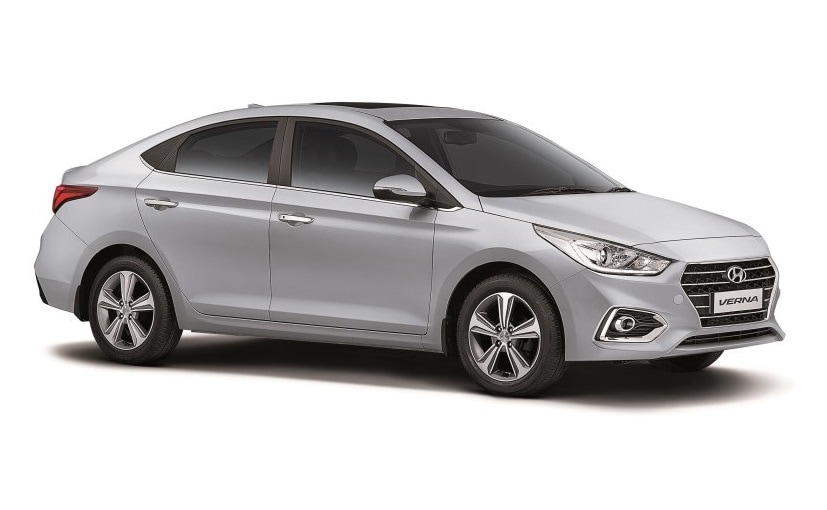
The 2017 Hyundai Verna is based on the new K2 platform
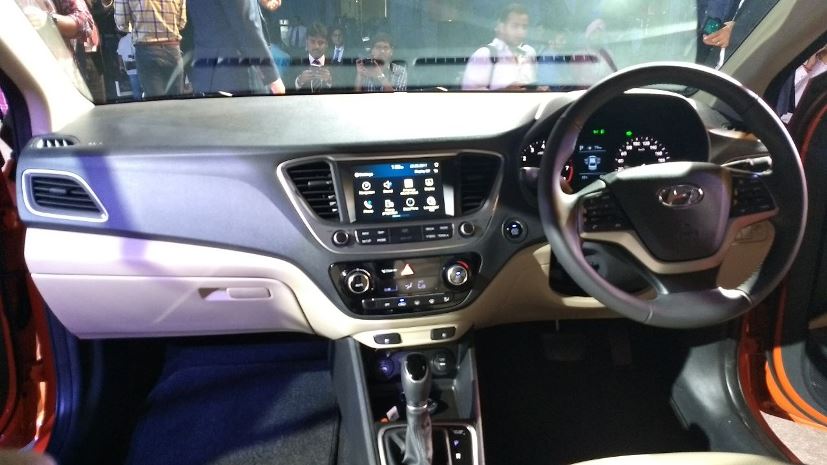
2017 Hyundai Verna's cabin layout
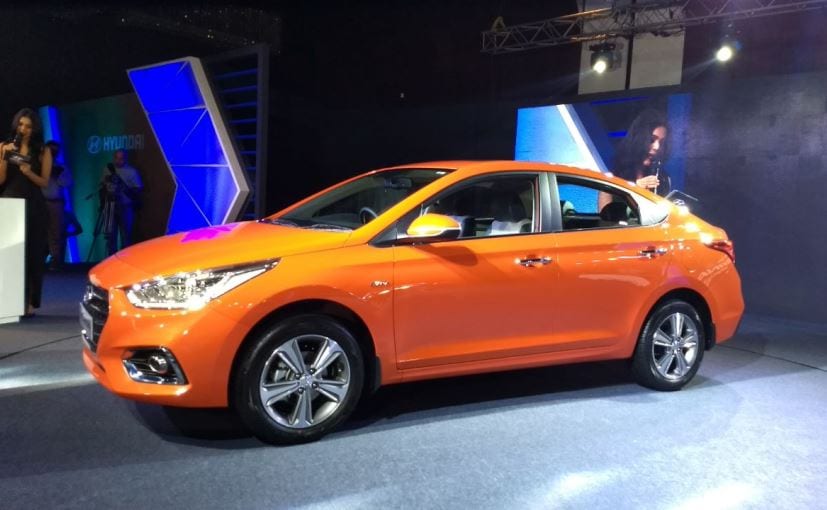
2017 Hyundai Verna is based on the new K2 platform
Also Read: New Gen Hyundai Verna Engine Specifications And Features Revealed
We have had the chance to drive the new Verna for a few laps at Hyundai's own test facility in Chennai and here is our first drive analysis. But before we go into details of how it drives, let us talk about the engine. The new Hyundai Verna comes with a 1.6-litre petrol and a 1.6-litre diesel engine, both mated to an automatic or manual 6-speed gearbox. The petrol engine makes 121 bhp and 130 Nm of peak torque while the diesel puts out 126 bhp of peak power and 245 Nm of peak torque.
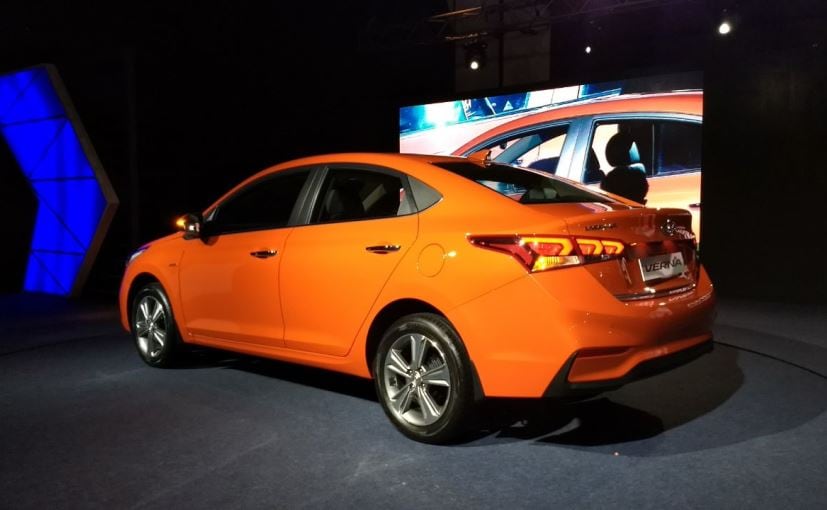
2017 Hyundai Verna come with new design updates and styling
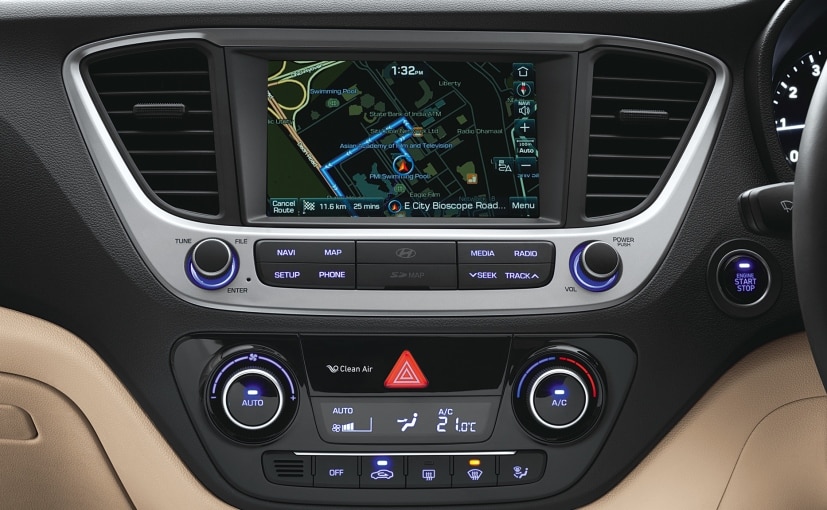
2017 Hyundai Verna infotainment system
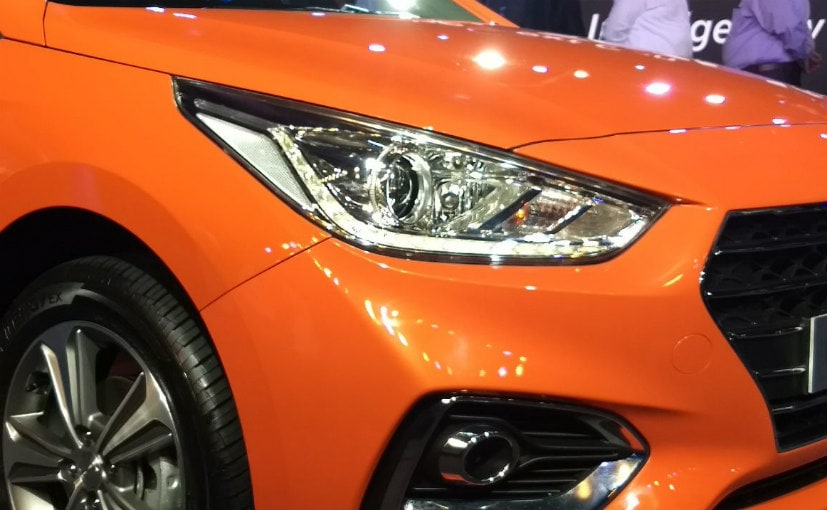
The new-gen Verna gets projector headlamps along with LED DRLs as well
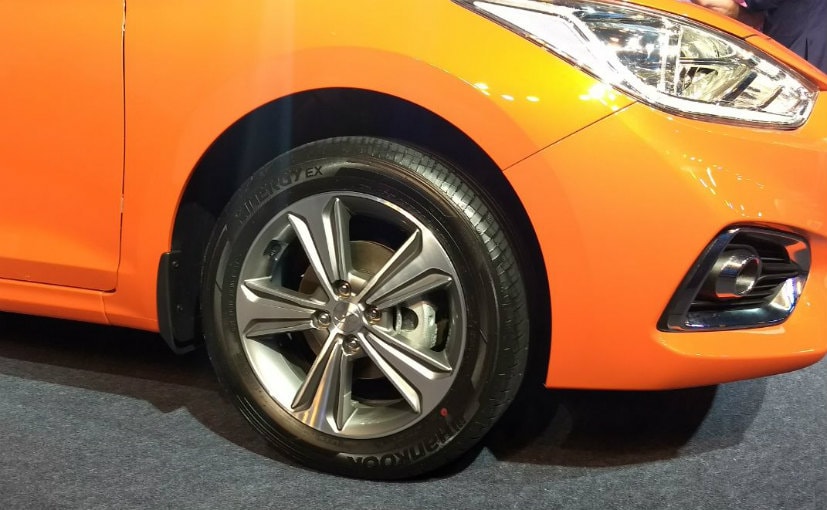
The next-gen Verna also gets 16-inch diamond cut alloys on the top trims
Last Updated on August 23, 2017
Related Articles
Latest News
Research More on Hyundai Verna
Popular Hyundai Models
 Hyundai CretaEx-Showroom Price₹ 11.11 - 20.5 Lakh
Hyundai CretaEx-Showroom Price₹ 11.11 - 20.5 Lakh Hyundai ExterEx-Showroom Price₹ 6.13 - 10.43 Lakh
Hyundai ExterEx-Showroom Price₹ 6.13 - 10.43 Lakh Hyundai Elite i20Ex-Showroom Price₹ 7.04 - 11.21 Lakh
Hyundai Elite i20Ex-Showroom Price₹ 7.04 - 11.21 Lakh Hyundai VenueEx-Showroom Price₹ 7.94 - 13.48 Lakh
Hyundai VenueEx-Showroom Price₹ 7.94 - 13.48 Lakh Hyundai VernaEx-Showroom Price₹ 11 - 17.48 Lakh
Hyundai VernaEx-Showroom Price₹ 11 - 17.48 Lakh Hyundai Grand i10 NiosEx-Showroom Price₹ NA - 8.56 Lakh
Hyundai Grand i10 NiosEx-Showroom Price₹ NA - 8.56 Lakh Hyundai TucsonEx-Showroom Price₹ 29.02 - 35.94 Lakh
Hyundai TucsonEx-Showroom Price₹ 29.02 - 35.94 Lakh Hyundai Creta N LineEx-Showroom Price₹ 16.82 - 20.91 Lakh
Hyundai Creta N LineEx-Showroom Price₹ 16.82 - 20.91 Lakh Hyundai New SantroEx-Showroom Price₹ 4.87 - 6.45 Lakh
Hyundai New SantroEx-Showroom Price₹ 4.87 - 6.45 Lakh Hyundai AlcazarEx-Showroom Price₹ 14.99 - 21.55 Lakh
Hyundai AlcazarEx-Showroom Price₹ 14.99 - 21.55 Lakh Hyundai Ioniq 5Ex-Showroom Price₹ 44.95 Lakh
Hyundai Ioniq 5Ex-Showroom Price₹ 44.95 Lakh Hyundai AuraEx-Showroom Price₹ 6.49 - 9.05 Lakh
Hyundai AuraEx-Showroom Price₹ 6.49 - 9.05 Lakh Hyundai i20 N LineEx-Showroom Price₹ 10 - 12.47 Lakh
Hyundai i20 N LineEx-Showroom Price₹ 10 - 12.47 Lakh Hyundai Creta EVEx-Showroom Price₹ 17.99 - 24.38 Lakh
Hyundai Creta EVEx-Showroom Price₹ 17.99 - 24.38 Lakh Hyundai Venue N LineEx-Showroom Price₹ 12.08 - 13.9 Lakh
Hyundai Venue N LineEx-Showroom Price₹ 12.08 - 13.9 Lakh
- Home
- News
- Upcoming Cars
- 2017 Hyundai Verna: First Drive















